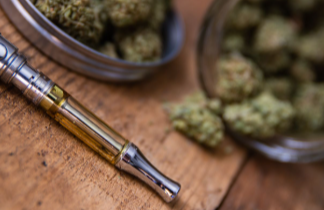What Does CBD Degrade Into?
CBD, or cannabidiol, undergoes degradation through various mechanisms, including oxidation, thermal degradation, and photodegradation. These processes lead to the formation of byproducts, such as cannabinol (CBN) and other cannabinoids, which may possess distinct chemical characteristics and biological effects. The implications of these degradation products warrant careful examination, as they can significantly influence the efficacy and safety of CBD products on the market. Understanding these transformations is crucial for informed consumer choices.
The Chemical Structure of CBD
Cannabidiol (CBD) is a phytocannabinoid characterized by its unique chemical structure, which consists of 21 carbon atoms, 30 hydrogen atoms, and 2 oxygen atoms, represented by the molecular formula C21H30O2.
This CBD molecular structure influences its chemical properties, including solubility and interaction with cannabinoid receptors in the body.
Understanding these properties is essential for harnessing CBD’s potential benefits in various applications.
Factors Influencing CBD Degradation
Several factors influence the degradation of CBD, impacting its stability and efficacy.
Temperature effects play a crucial role, as elevated temperatures can accelerate the breakdown of CBD molecules.
Additionally, light exposure contributes significantly to degradation, particularly ultraviolet light, which can catalyze oxidative reactions.
Understanding these variables is essential for maintaining the integrity and effectiveness of CBD products in various applications.
Byproducts of CBD Degradation
As CBD degrades due to environmental factors, it can produce a range of byproducts, which may vary in their chemical properties and biological activity.
The degradation pathways include oxidation, thermal degradation, and photodegradation, leading to substances such as cannabinol and other cannabinoids.
Understanding these CBD byproducts is crucial for assessing their potential effects and implications in various applications.
Implications for CBD Products and Consumers
Although consumers often seek CBD products for their purported health benefits, the degradation of CBD and its byproducts can significantly influence product efficacy and safety.
This degradation necessitates rigorous product labeling to ensure consumer safety, as unregulated products may contain harmful byproducts.
Understanding these implications empowers consumers to make informed choices, ultimately enhancing their autonomy and ability to pursue health options responsibly.
Conclusion
In conclusion, while consumers may naively clutch their CBD products with visions of wellness, the reality is a complex dance of chemical transformations. As CBD gracefully degrades into its byproducts, such as CBN, it seemingly invites users to question not just the efficacy, but the very nature of their herbal elixirs. Thus, the discerning consumer must navigate this biochemical minefield, armed with knowledge, lest they unwittingly replace health benefits with a cocktail of unpredictable cannabinoids.



